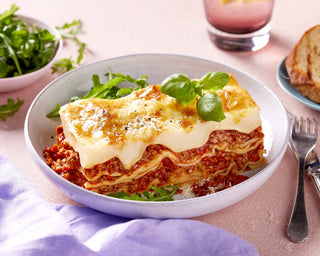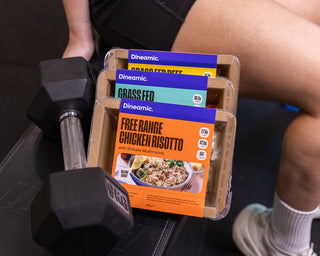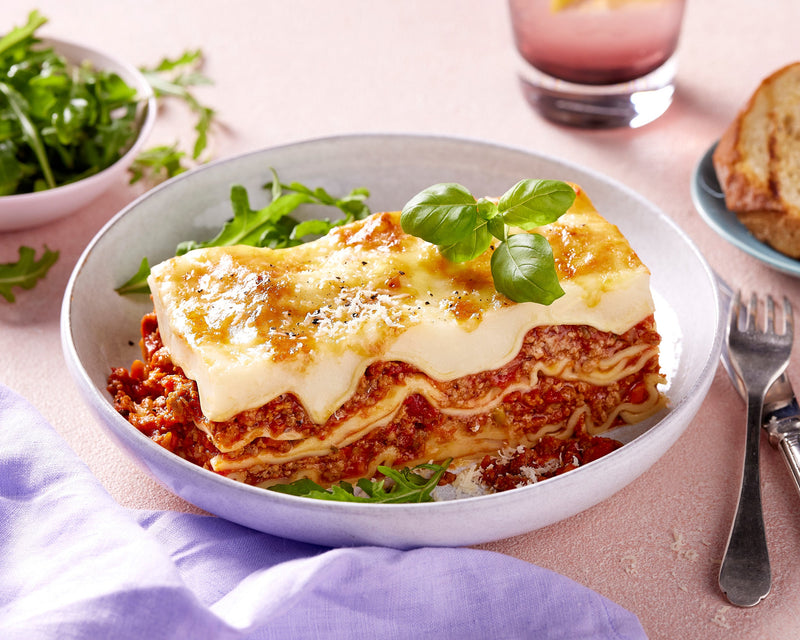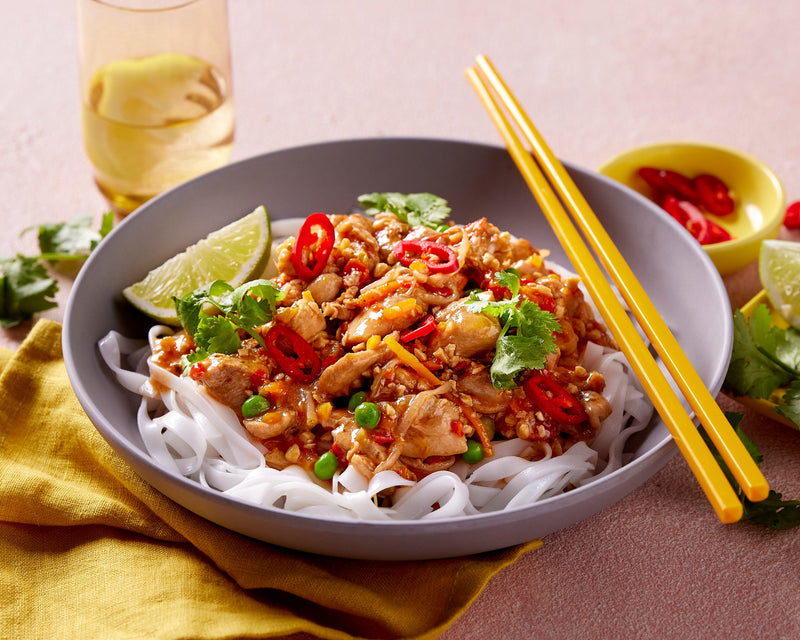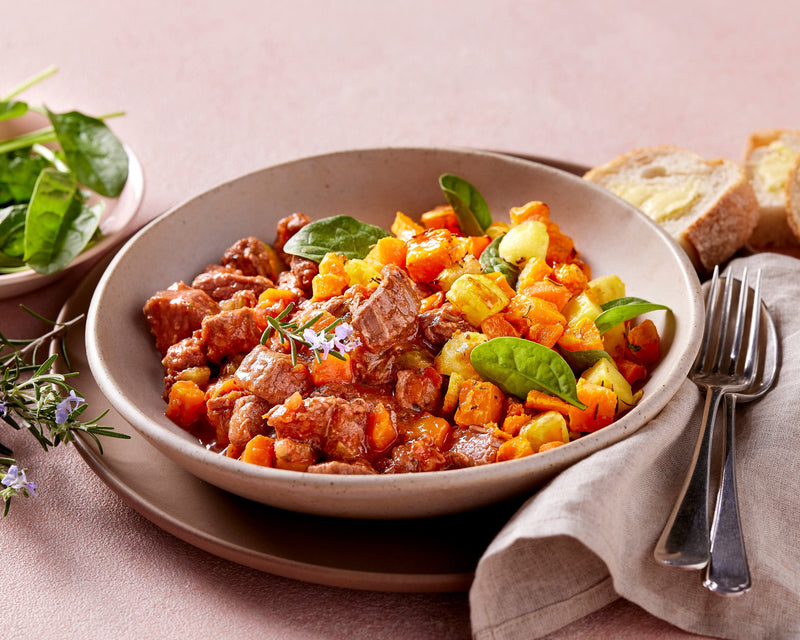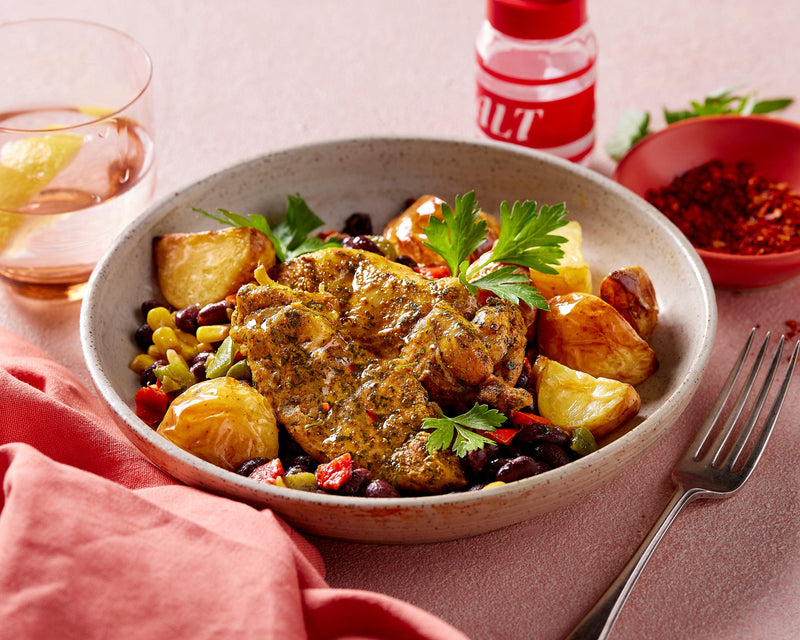
Whether you’re an elite athlete or someone who likes to get active for fun, fitness or health, fuelling your body the right way can have a big impact on your training, recovery and achieving your goals. By taking the time to understand the types of food that you need to eat and even the timing of eating it, you’ll be able to get closer to those goals and help prevent some of the potential negative after-effects of training hard such as fatigue and a lowered immune system.
Carbs are Key
Carbohydrates are the body’s primary energy source and help us maintain good energy levels, delaying fatigue and supporting recovery. However not all carbohydrates are the same, understanding the right type, timing and amount are key to achieving the best from your bod.
What type of carbohydrate should I have?
Traditionally, the ‘type’ of carbohydrate were either categorised according to its structure (i.e. ‘simple’ versus ‘complex’) or ranked according to the blood glucose response (i.e. ‘low GI’ vs ‘high GI). From a Sports Nutrition point of view, carbohydrates are generally categorised as ‘nutrient-dense’, ‘nutrient- poor’ or ‘high- fat’ carbohydrates. Foods in the nutrient-dense category should be incorporated into your daily diet to help meet the body’s nutritional needs. Nutrient-poor and high-fat carbohydrates are those ‘sometimes’ foods, and eating them will depend on your training session.
Ok, you’ve got that covered, but what do those groups actually mean and what foods does that translate to?
- Nutrient-dense: foods and fluids that also contain rich sources of protein, vitamins, minerals, fibre and antioxidants (e.g. Bread, starchy vegetables, legumes)
- Nutrient-poor: carbohydrate sources that contain minimal other nutrients (e.g. sports drinks, lollies)
- High fat: carbohydrate sources that are also high in fat (e.g. baked goods, chocolate)
Larger portion sizes and foods that are high in fat or contain higher amounts of fibre may also trigger gastrointestinal discomfort when eaten pre-training. The best way to avoid any issues is to become familiar with what foods you find work best for you and that your body can tolerate before training.
You don’t want to work hard on your training only to have an upset stomach on the day of your comp, fun run, or triathlon. Use training to test what works for you - if it works in training, then it should work for competition-day as well.
So how much I need per day?
The amount of carbohydrates your body needs will depend on a whole lot of different factors - the type of training, training phase, gender, body weight and composition, genetics and altitude.
To tailor your needs, it can be a good idea to seek advice from an Accredited Sports Dietitian. However that’s not always possible or necessary, so for more general info on how much to eat, we recommend checking out the Australian Institute of Sport advice on nutrition.
How do I time my meals around training?
The timing of when you eat carb-rich foods is also key to maximise your output and support the intensity of your training session. 3-4 hours before exercise is the best time to eat carbohydrate-rich meals, this means that your energy levels will be where you need them by the time you get to your training session.
But what about those times when that isn’t possible, you know, like that 6am start? For this, we recommend a light snack like Bircher Muesli with Berries or a piece of fruit. This is a great alternative when you’re on the clock and it will help top up your glycogen stores and blood glucose levels.
For long training sessions (>90 minutes), eating some carbohydrates during training will reduce the amount of effort required to keep going and will help out you’re your concentration.
Healthy fats in the form of polyunsaturated and monounsaturated fats are also necessary for providing energy, fat-soluble vitamins and essential fatty acids. However moderate amounts are recommended despite the belief that high fat, low carb diets can assist with endurance performance.
Our go-to pre-workout Meals:
3-4 hours before exercise:
1-2 hours before exercise or first thing in the morning:
- Spinach and Matcha Smoothie Mix
- Strawberry and Coconut Smoothie Mix
Recovery
To understand what you’ll need for recovery, you’ll need to work out how much fuel you’ve burned - was it a bucket of sweat lost or are you barely feeling any muscle fatigue at all?
There are a number of things that we aim to do in the recovery phase:
- Restore carbohydrate stores in the muscles and liver
- Replace fluid and electrolytes loss
- Increase muscle protein mass
- Aid other cellular processes and allow your immune system to cope with the effects of exercise on the body.
There are two main windows of opportunity, within the first hour, and then 4 to 6 hours after training.
Within the first hour, it is best to eat approximately 1-1.2g of carbohydrates per kg of body weight as this is when your body is most efficient with glycogen synthesis. We also recommend consuming 15 – 25g of protein as the body rebuilds muscle at a faster rate during this time.
Within 4-6 hours of training, rehydrate! Fluids should be consumed to restore 125-150% of your estimated fluid loss. In other words, if you did lose a bucket of sweat, then you’ll be drinking more than someone who only broke a light sweat – makes sense. Your body will tell you that it’s in need of more hydration, so don’t ignore it!
Sodium will also help to replenish fluid and electrolyte loss and can be added to drinks (50-80mmol/L) or consumed in your post-training meal. If you’re in a rush, smoothies and flavoured milk can work simultaneously to rehydrate and restore carbohydrate and protein levels.
With higher intensity training, the immune system is often suppressed, carbohydrates are known to reduce the stress hormone response to exercise, supply glucose to fuel white cells and reduce the decline in immune system markers. All good things!
Contrary to what your Instagram feed might be showing you, supplements in the form of liquid meal replacements can be poorly regulated with confusing claims. We always recommend doing your research to find the best option if you do choose them. Real food, as opposed to supplements, are always a better option for meeting your nutrition needs.
Our Go-to Post-workout Meals:
Share your training tips & tricks in the comments or let us know what you'd like us to write about next.


